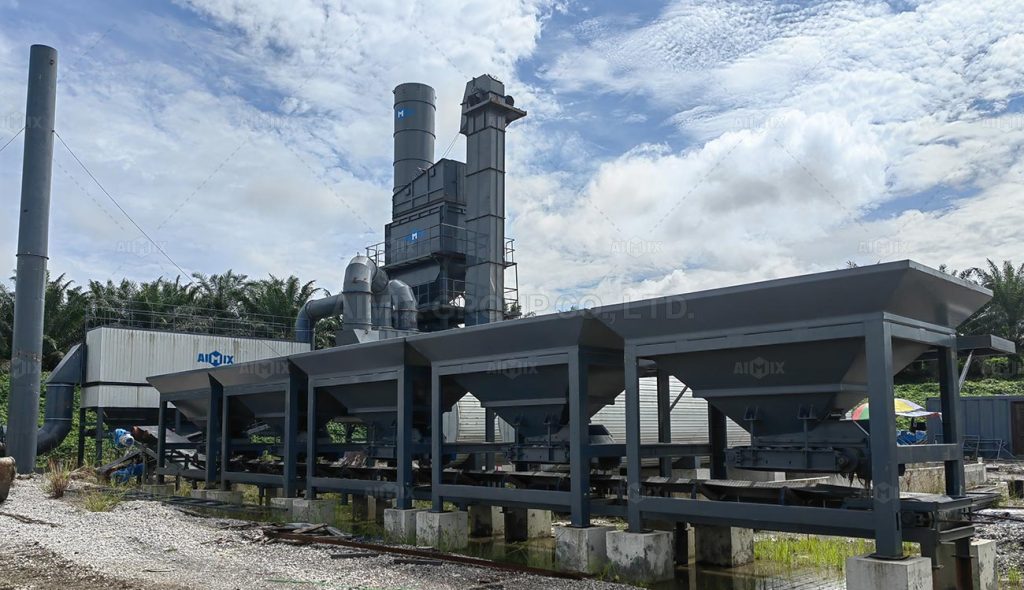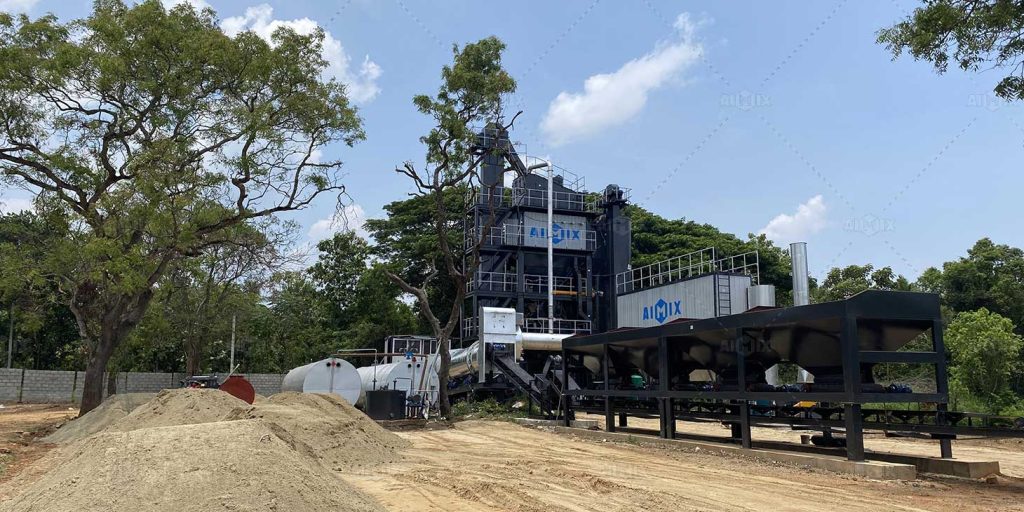In the bustling world of construction and infrastructure development, asphalt plays a crucial role in providing a sturdy foundation for roads, highways, and runways. To achieve this, construction companies rely on advanced technologies, and one such innovation is the drum asphalt mixing plant. This sophisticated machinery efficiently blends various materials to produce high-quality asphalt for road construction projects. In this article, we will delve into the advantages and disadvantages of employing a drum asphalt mixing plant in construction ventures.
Pros of Drum Asphalt Mixing Plant
1. High Production Efficiency
Drum asphalt mixing plants are renowned for their exceptional production efficiency. They incorporate a continuous mixing process, where raw materials such as aggregates, bitumen, and filler are fed into the rotating drum. This continuous operation streamlines the production process, enabling a steady output of asphalt without interruption. As a result, construction timelines can be met more effectively, leading to faster project completion.
Furthermore, the drum’s design enhances heat transfer efficiency, allowing for better temperature control during the mixing process. This meticulous temperature management ensures that the asphalt mixture achieves the desired consistency and quality, resulting in durable and resilient roads. Find asphalt plants here: https://aimixasphaltplant.com/

2. Eco-Friendly Asphalt Production
In an era where environmental concerns have reached an all-time high, sustainable practices are a top priority in the construction industry. Drum asphalt mixing plants offer an eco-friendly advantage over their conventional counterparts. These plants are equipped with advanced dust collection systems and smoke treatment devices, reducing harmful emissions and air pollutants significantly.
Moreover, some drum asphalt mixing plants are designed to incorporate reclaimed asphalt pavement (RAP) into the production process. By recycling and reusing existing asphalt materials, the need for raw resources is minimized, conserving natural resources and curbing excessive waste.
Cons of Drum Asphalt Mixing Plant
1. Limited Flexibility
While drum asphalt mixing plants excel in production efficiency, they often come with limited flexibility in terms of accommodating varying mix designs. Unlike batch plants, which can quickly switch between different mix formulations, drum mix asphalt plants require a more substantial adjustment process to alter the mixture’s composition.
Construction projects with specific asphalt requirements may find the lack of flexibility in drum plants somewhat restrictive. In such cases, batch plants might be a more suitable option, as they allow for more rapid changes in mix design, thereby catering to diverse project needs.

2. Higher Initial Investment
While drum asphalt mixing plants offer numerous advantages, they also require a higher initial investment compared to traditional batch plants. The advanced technology, continuous operation capabilities, and sophisticated components contribute to the elevated cost of drum plants.
Construction companies and contractors must carefully weigh the long-term benefits of increased production efficiency and eco-friendly practices against the initial financial outlay. Despite the higher upfront expenses, the enhanced productivity and sustainable aspects of small portable asphalt mixing plants may prove to be cost-effective in the long run.
Conclusion
In conclusion, drum asphalt mixing plants are a commendable addition to the construction industry, revolutionizing the production of high-quality asphalt for roads and infrastructure. The seamless blending process, coupled with eco-friendly features, makes them a worthy contender in the asphalt mixing arena.
Nonetheless, it is essential to recognize the limitations, such as reduced flexibility and higher initial costs, before making a decision. As construction practices evolve and environmental concerns persist, drum asphalt mix plants will likely continue to play a significant role in shaping the future of road construction, striking a balance between efficiency and sustainability.